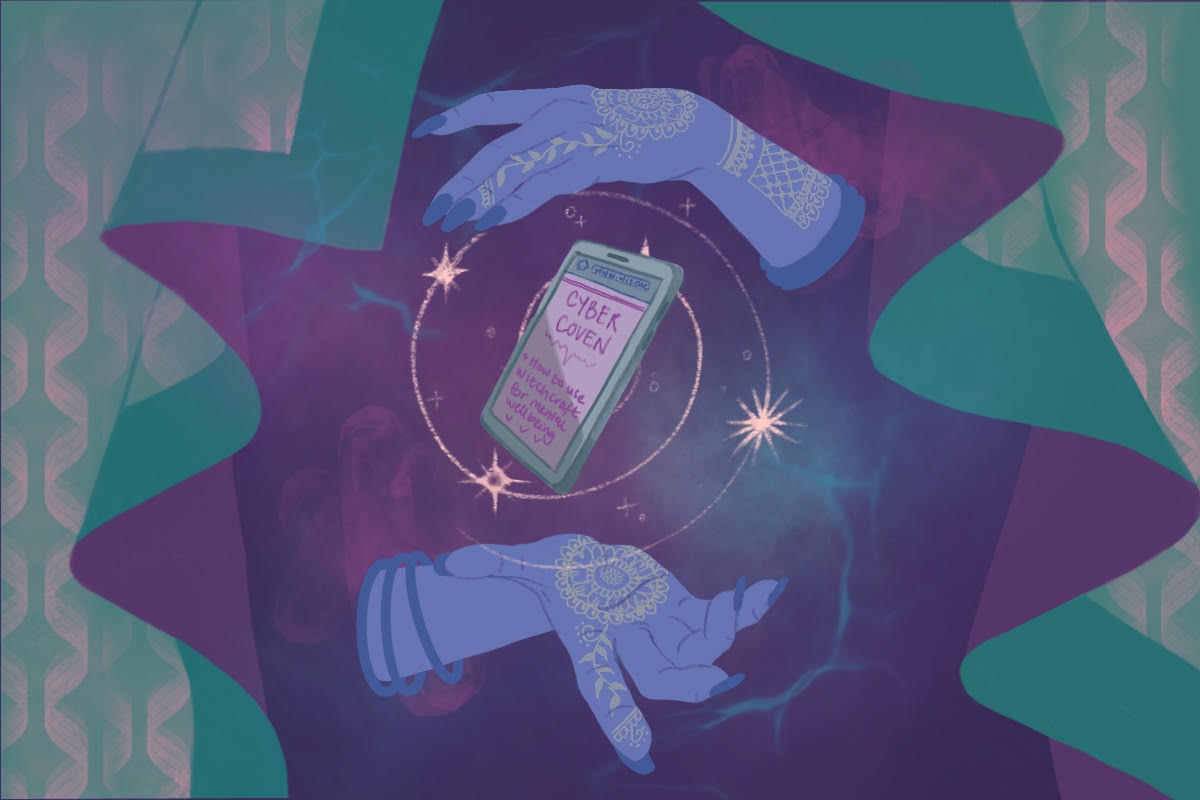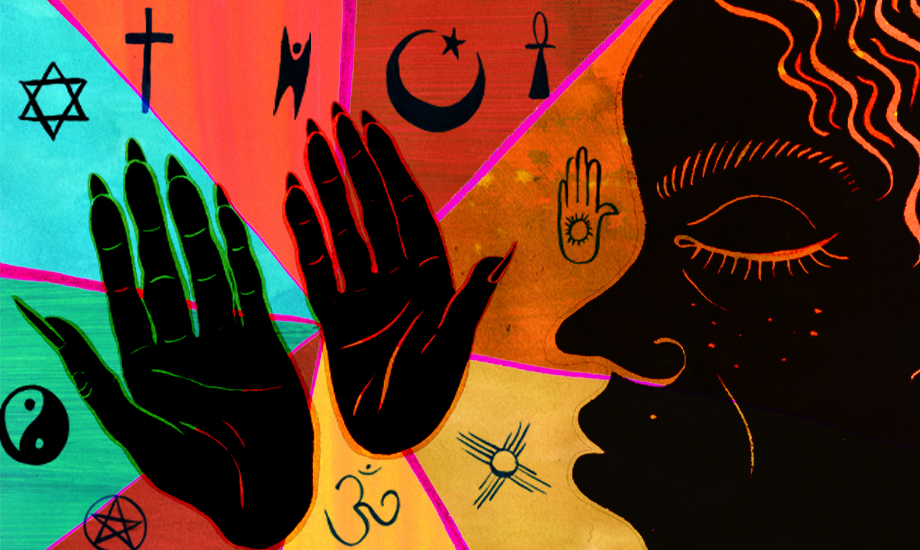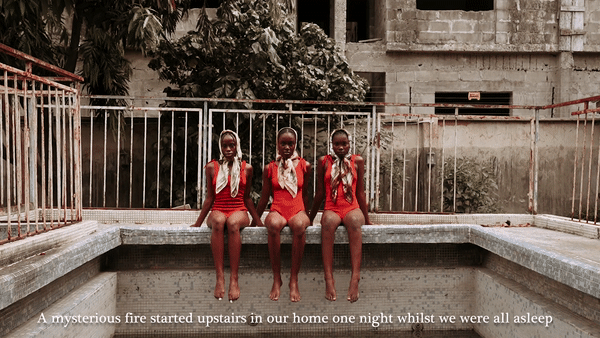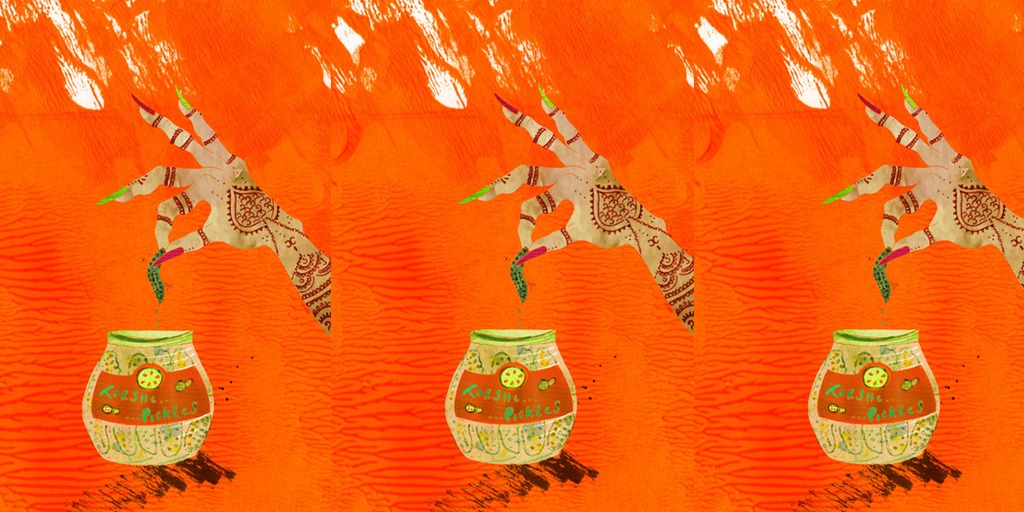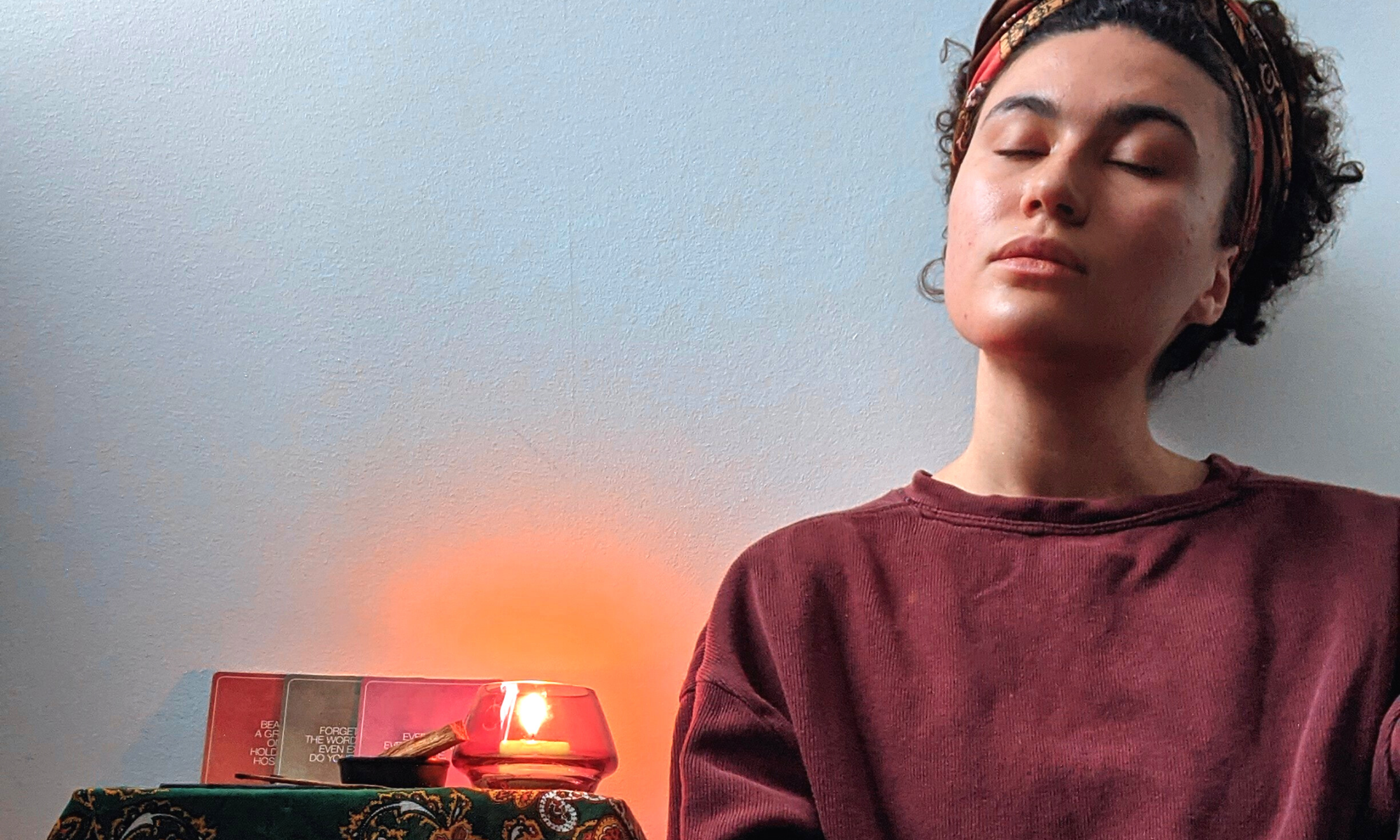
As a former sceptic, an ancestral connection has become a lifeline in lockdown
Spending time at home has forced Rosel Jackson Stern to confront the spiritual knowledge and history that’s been displaced in their family.
Rosel Jackson Stern
05 Feb 2021
For most of my life, I was dismissive of all things “woo woo”. Any mentions of higher vibrations, manifesting your Highest Good or even a whiff of sage made me instantly roll my eyes to the back of my skull and keep it pushing. My relationship to spiritual practices was the same as it was The Sopranos or sex with men: no matter how many times I tried, it just could never be me. I resigned myself to this belief for a long time, displacing my devotion onto work, relationships or incessant brownie baking. It wasn’t just about preference or belief — I was convinced that in this world, in this body, protection and support were a finite resource. I couldn’t afford to assume I would be supported by humans I could see in front of me, let alone the universe. And yet, when I now find myself in prayer, the long held scepticism dissipates.
At seven years old, I opened my mouth as a priest administered my first communion. My school wasn’t explicitly Christian but all our end of year ceremonies were held in a church nearby. The alcohol-free wine tasted bitter on my tongue as I looked up at the domed ceiling, white cherub-like beings staring down at me benign and unmoved. “This, surely, has nothing to do with me” I felt. Soon after that, I quit the church choir, another ritual I only conducted out of norm and habit. I didn’t want to sing about God because any divine being that presided over systems of oppression was either evil or inept, qualities I didn’t appreciate even at the ripe old age of seven.
“My atheism wasn’t just a rejection of anything spiritual, it was the feeling of being left out in the cold”
My atheism wasn’t just a rejection of anything spiritual, it was the feeling of being left out in the cold. It was the deeply held conviction that my road to contentment would be all bloody knuckles and chipped teeth. It would be gravel, turned ash, turned soot in my mouth. I thought that people like me weren’t supported, weren’t loved on anything but perhaps an interpersonal level and I was no different.
And so, I toiled in the barren land of my own making during my teens and early twenties. Call it depression, call it anxiety, call it a spiritual desert in which I was setting myself on fire. I worked until my body hugged toilet bowls, curled around suffering like it was keeping me warm. I was untethered, a feeling my ex described as having your soul knock around in your body rather than stretching towards your extremities and the earth. On one of those nights looking up at yet another ceiling, I asked whether this really was where I had to be. It clearly wasn’t a vibe and I wanted out. Now, this isn’t a story where mental health struggles baptise you into a spiritual awakening, but even I was forced to admit that my beliefs were no longer supporting my desires.
My incessant need to control the universe had become acute in deeply humbling ways, ways that peeled off the most ruthless parts of myself. What followed is only something I’m able to make sense of in hindsight. Like all paradigm shifts, it’s constituent parts revealed themselves piece by piece rather than all at once. I’d turn these conversations with friends, teachers or pieces of literature, over in my hands, feeling their texture beneath my fingertips as they slotted something long forgotten into place.
When we stand on the precipice of a previously scorned modality of existence, faith can feel costly. Shedding skins that house our survival assumes that they are no longer needed, a circumstance that isn’t true for everyone. Making this transition isn’t inherently desirable or a sure way to never suffer again. In fact, committing to feeling deeply and listening to oneself can throw up more fear, pain and heartbreak. Committing to my own peace meant dissolving linear notions of time and accepting that there was no point in which I know everything, or even anything. Little seeds of trust sewed deep in my chest could then be nourished and eventually bloom. My inner sceptic was rebellious against prescriptive rituals, doctrines and teachers but couldn’t argue with the practice of making decisions with my gut rather than my fear.
“Cut to 22 and I’m sitting in my home in front of an old wooden box turned to an altar. I’ve lit a candle and poured some milk as an offering to my ancestors”
Cut to 22 and I’m sitting in my home in front of an old wooden box turned to an altar. I’ve lit a candle and poured some milk as an offering to my ancestors. My room is filled with the scent of palo santo and incense, none of it quite masking the nagging feeling that I don’t know whether I’m doing this right. I begin my prayers in the same way I’ve heard my teachers begin theirs in communal prayer groups and podcasts – shout out to Leona Nichole Black and Kelechi Okafor – turning inwards and taking deep breaths. I start to say “dear spirit, dear honourable ancestors and protective angels” and list the things I’m grateful for out loud. I let them fill every inch of my body. I speak the words into the room, reaching for something I’m unsure will reach back. As I sit in the radiance of nothing less tangible than the moment, I become still. I speak to the entities without whom I would not be here. I let them know that despite my past beliefs I am grateful for their love.
Ancestral connection is presence. Many of us have lineages coated with trauma and displacement that have altered our epigenetics. For me, who has felt deeply untethered for most of my life, having a relationship with my ancestors feels like a commitment to holding the complexity of the past and the possibility of the present. My relationship to my ancestors is the simple acknowledgement that I am here because of others who came before me, others who experienced the same amounts of joy, pain and love as I do. It’s a commitment to hold both the beauty and ugliness in me, so that I may observe it in them.
When I first began my prayers, they felt like a shot in the dark. Now, however, they make way for what’s possible, enfolding a presence before I even know it’s there. I haven’t discarded my scepticism but I’ve learned to better observe when her input supports my joy and when it doesn’t. She teaches me discernment, to choose my teachers carefully and avoid the toxic positivity of some spiritual communities. Ancestral connection tempers her stormy waters when I begin to feel disconnected from the world around me. I have learned how to cradle her woundedness through meditation and self care regimens. In so doing, a world in which support is possible has come into being.

